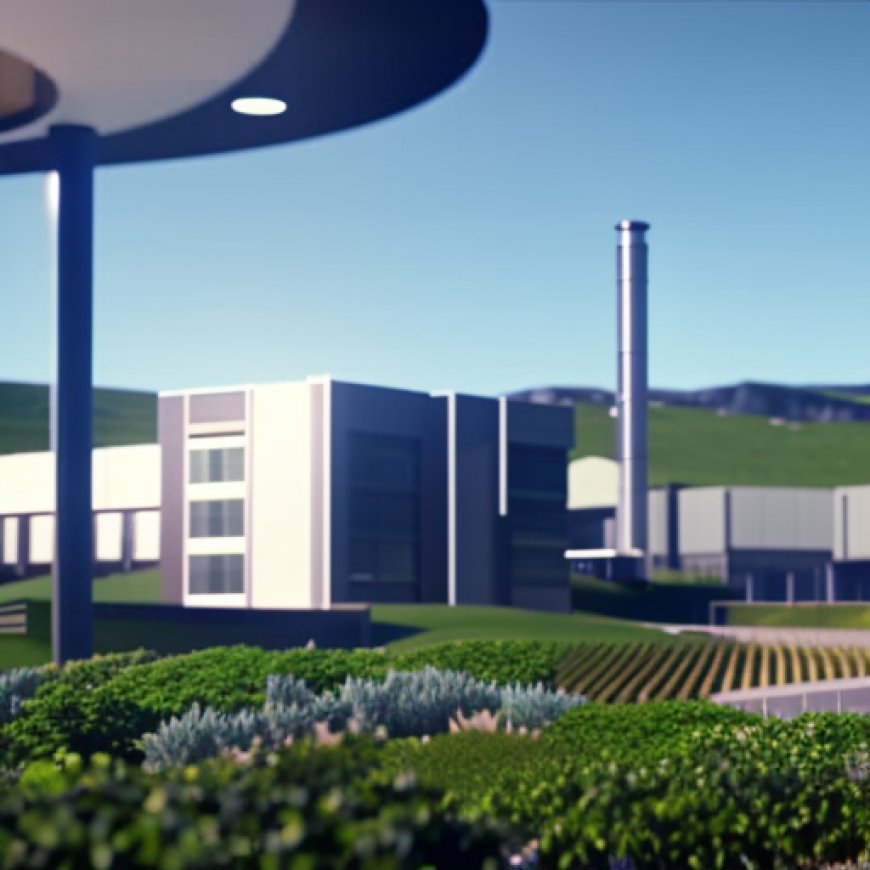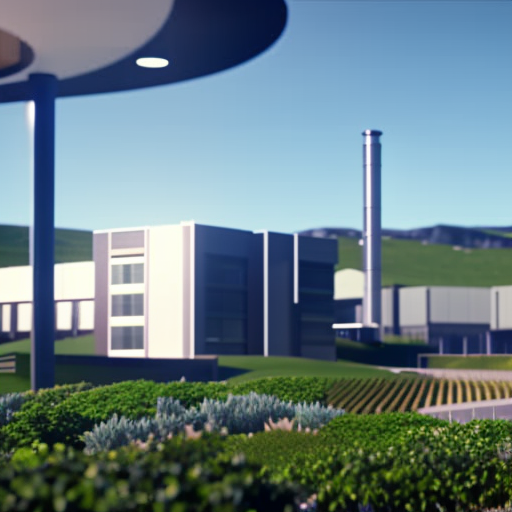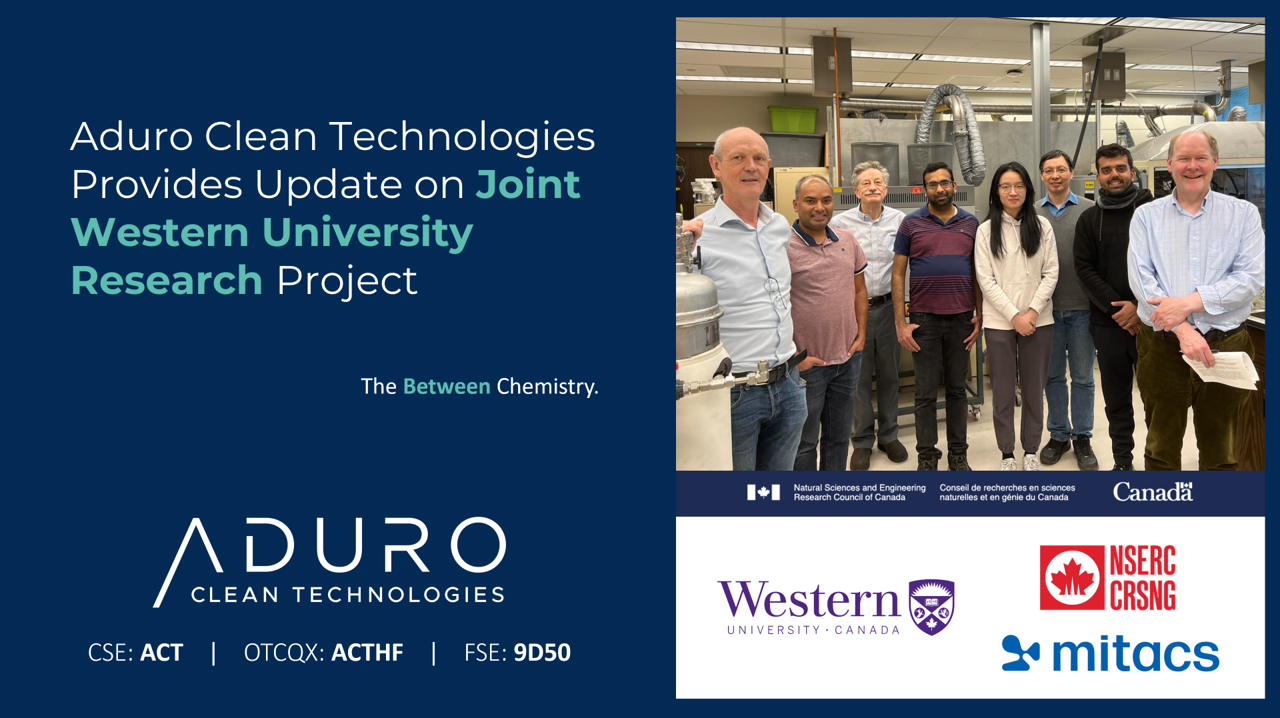Aduro Clean Technologies Provides Update on Joint Western University Research Project
Aduro Clean Technologies Provides Update on Joint Western University Research Project GlobeNewswire


LONDON, Ontario, April 04, 2024 (GLOBE NEWSWIRE) — Aduro Clean Technologies Inc.
Aduro Clean Technologies Inc. (“Aduro” or the “Company”) (CSE: ACT) (OTCQX: ACTHF) (FSE: 9D50), a Canadian technology company using the power of chemistry to transform lower value feedstocks, like waste plastics, heavy bitumen, and renewable oils, into resources for the 21st century, is pleased to provide an update on its research project titled “Tuning Supercritical Fluids for Polymer Recycling to Monomers and Chemicals” in partnership with Western University.
Project Overview
Launched in early 2023 with a generous $1.15 million in grant funding from the NSERC Alliance and Mitacs Accelerate Grants Program, complemented by a $382,500 additional contribution from Aduro, this three-year project aims to advance the company’s polymer recycling program through conscientious research. The project also provides high-quality training and mentoring to the project researchers to develop them as highly qualified personnel for advanced polymer recycling. Under the leadership of Dr. Paul Charpentier and Dr. Cedric L. Briens at Western University, the team has conducted rigorous studies generating a significant knowledge database that supports the objective of advancing the recycling processes.
Research Findings
In April 2024, Dr. Charpentier reported on the project’s current status, focusing on the innovative recycling of polyolefins like LDPE, HDPE, and PP using Hydrochemolytic technology (HCT). This research investigates the applicability of HCT, catalytic and thermal processes, and the combination thereof to maximize the conversion of mixed plastic waste into valuable chemicals and streamline the recycling processes.
technology (HCT). This research investigates the applicability of HCT, catalytic and thermal processes, and the combination thereof to maximize the conversion of mixed plastic waste into valuable chemicals and streamline the recycling processes.
Key Research Areas
- Investigation of applying HCT to polymer feedstock for benchmarking and training of personnel
- Literature review and search on other recycling technologies and contaminants in waste plastic
- Understanding the solubility/miscibility and effect of reaction parameters for enhancing chemical recycling efficiency
- Identifying and quantifying impurities in polyolefins and understanding their fate in different chemical recycling processes
- Advanced sorting and processing techniques for polyolefin waste
Future Research
The current phase will investigate the behavior of contaminants under Hydrochemolytic technology and pyrolysis conditions to enhance the Company’s database. This knowledge is vital for improving recycling practices and ensuring higher efficiency and environmental benefits.
Impact and Employment
Over the duration of the project, the research program will employ a total of 19 highly skilled research members and engineers. A key highlight of the initiative has been the successful recruitment of researchers from the program into Aduro’s team. Aduro has already offered positions to outstanding graduates from the project, enabling them to continue their impactful work as full-time Aduro employees.
About Aduro Clean Technologies
Aduro Clean Technologies is a developer of patented water-based technologies to chemically recycle waste plastics; convert heavy crude and bitumen into lighter, more valuable oil; and transform renewable oils into higher-value fuels or renewable chemicals. The Company’s Hydrochemolytic technology relies on water as a critical agent in a chemistry platform that operates at relatively low temperatures and cost, converting low-value feedstocks into resources for the 21st century.
technology relies on water as a critical agent in a chemistry platform that operates at relatively low temperatures and cost, converting low-value feedstocks into resources for the 21st century.
Contact Information
- Ofer Vicus, CEO – ovicus@adurocleantech.com
- Abe Dyck, Investor Relations – ir@adurocleantech.com | +1 604 362 7011
- Arrowhead, Thomas Renaud, Managing Director – enquire@arrowheadbid.com | +1 212 619 6889
Forward-Looking Statements
This news release contains forward-looking statements. All statements, other than statements of historical fact that address activities, events, or developments that the Company believes, expects, or anticipates will or may occur in the future, are forward-looking statements. The forward-looking statements reflect management’s current expectations based on information currently available and are subject to a number of risks and uncertainties that may cause outcomes to differ materially from those discussed in the forward-looking statements. The Company expressly disclaims any intention or obligation to update or revise any forward-looking statements whether because of new information, future events, or otherwise, except as required by applicable law.
The CSE has not reviewed, approved, or disapproved the content of this news release.

A photo accompanying this announcement is available at https://www.globenewswire.com/NewsRoom/AttachmentNg/f6283664-3201-403f-b89e-fad1efd3e93b

SDGs, Targets, and Indicators
1. Which SDGs are addressed or connected to the issues highlighted in the article?
- SDG 9: Industry, Innovation, and Infrastructure
- SDG 12: Responsible Consumption and Production
- SDG 13: Climate Action
The article discusses Aduro Clean Technologies’ research project on polymer recycling and their efforts to transform waste plastics into valuable resources. This aligns with SDG 9, which aims to promote sustainable industrialization and foster innovation. It also relates to SDG 12, which focuses on responsible consumption and production by reducing waste generation and promoting recycling. Additionally, the article mentions the use of technology to maximize the conversion of plastic waste, which contributes to SDG 13’s goal of taking urgent action to combat climate change.
2. What specific targets under those SDGs can be identified based on the article’s content?
- SDG 9.4: Upgrade infrastructure and retrofit industries to make them sustainable
- SDG 12.5: Substantially reduce waste generation through prevention, reduction, recycling, and reuse
- SDG 13.2: Integrate climate change measures into national policies, strategies, and planning
The article mentions Aduro’s efforts to advance their polymer recycling program through research and innovation. This aligns with SDG 9.4, which aims to upgrade infrastructure and industries to make them sustainable. The focus on recycling waste plastics also contributes to SDG 12.5, which targets the reduction of waste generation through recycling. Additionally, the article highlights the use of technology to address climate change, which relates to SDG 13.2’s goal of integrating climate change measures into policies and planning.
3. Are there any indicators mentioned or implied in the article that can be used to measure progress towards the identified targets?
- Investment in research and development for sustainable industrial processes
- Amount of waste plastics recycled and converted into valuable chemicals
- Integration of climate change measures in recycling processes
The article mentions Aduro’s research project and their collaboration with Western University, indicating investment in research and development for sustainable industrial processes. The successful recruitment of researchers into Aduro’s team also implies progress in developing highly qualified personnel for advanced polymer recycling. The article also discusses the conversion of waste plastics into valuable chemicals, indicating progress in recycling efforts. Lastly, the use of technology to address climate change suggests the integration of climate change measures in recycling processes.
Table: SDGs, Targets, and Indicators
| SDGs | Targets | Indicators |
|---|---|---|
| SDG 9: Industry, Innovation, and Infrastructure | Target 9.4: Upgrade infrastructure and retrofit industries to make them sustainable | – Investment in research and development for sustainable industrial processes – Recruitment of highly skilled research members and engineers |
| SDG 12: Responsible Consumption and Production | Target 12.5: Substantially reduce waste generation through prevention, reduction, recycling, and reuse | – Amount of waste plastics recycled and converted into valuable chemicals |
| SDG 13: Climate Action | Target 13.2: Integrate climate change measures into national policies, strategies, and planning | – Integration of climate change measures in recycling processes |
Behold! This splendid article springs forth from the wellspring of knowledge, shaped by a wondrous proprietary AI technology that delved into a vast ocean of data, illuminating the path towards the Sustainable Development Goals. Remember that all rights are reserved by SDG Investors LLC, empowering us to champion progress together.
Source: globenewswire.com

Join us, as fellow seekers of change, on a transformative journey at https://sdgtalks.ai/welcome, where you can become a member and actively contribute to shaping a brighter future.







